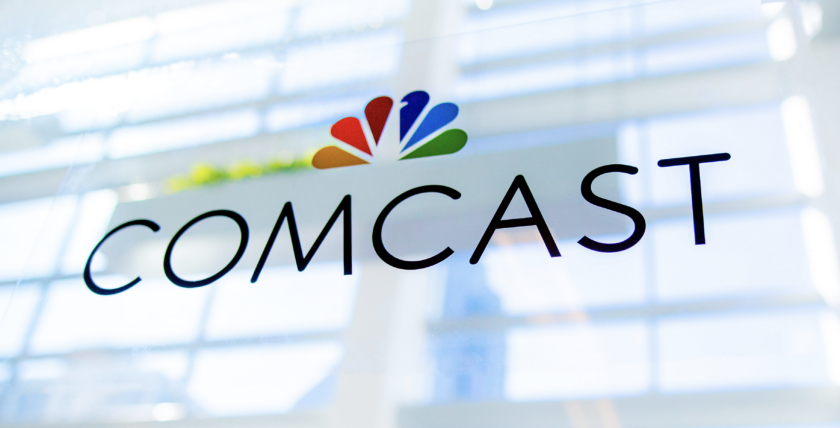M+E Connections

Comcast Execs: Company’s Upbeat About 2018 Despite Challenges
Story Highlights
Comcast expects strong 2018 performance despite challenges that include continued competition in the video sector, the growing number of cord-cutters, and a theatrical film release slate that isn’t quite as promising as what it offered in 2017, according to company executives.
The company achieved “record profitability” in its film business during 2017, crossing $5 billion in global box office for the second time in the history of Universal Pictures, behind successes including “Despicable Me 3” and Best Picture Oscar nominee “Get Out,” Comcast CEO Brian Roberts said Jan. 24 on an earnings call for the fourth quarter and year (ended Dec. 31).
Although film revenue soared 20.4% to $7.7 billion for the full year, it slid 5.2% to $1.7 billion for Q4 due to a weaker slate than what was offered in Q4 a year earlier.
“While we will not beat our 2017 performance, we expect 2018 to be a solid year” nevertheless, behind film releases including new “Jurassic World” and “50 Shades” titles, Roberts said. Universal has a “more robust” animation film slate planned for 2019 than it does for 2018, he noted.
The company, meanwhile, added 770,000 net new cable TV customer relationships and added 1.2 million net new broadband customers in 2017, he said.
Comcast Cable Networks revenue inched up 1.6% to $10.6 billion for the year and grew 7.5% to $2.7 billion for Q4. But Comcast lost 33,000 video customers in Q4 after adding 80,000 in Q4 the prior year.
Last year “brought a new normal to competition in video, including more aggressive offers from traditional and emerging competitors,” Roberts said on the call. But “we more than held our own in this environment” and the company is “well-equipped to compete in this evolving marketplace,” he said.
Later, during the Q&A with analysts, David Watson, Comcast Cable president and CEO, conceded it’s “definitely a very competitive video environment and we really don’t expect the level of competition to diminish.” But he said: “We’re going to continue to aggressively compete for profitable video relationships” and “we feel good about Q4.”
Comcast also saw the “adjustment coming” in the video marketplace, including the “intensity of the over-the-top new entrants and, based on that, while we’re going to compete aggressively across the board for good video customers, we have transitioned more and more towards broadband,” which is a “centerpiece for us,” Watson said. The company recently added an XFINITY Instant TV streaming service that doesn’t use a set-top box and “we’re going to use that on a targeted basis,” he pointed out, adding: “Our focus is going to continue to be bundling — full bundles leveraging best in class, X1 and then broadband.”
The company has benefited from the expansion of its X1 multiscreen, cloud-based entertainment platform to more of its cable TV customers. But that expansion doesn’t seem to have a whole lot of room left. After all, nearly 60% of its residential video customers already have it now, so “the pace of our rollout has started to slow,” CFO Michael Cavanagh said on the call.
Comcast subscribers with X1 can expect enhanced options when watching the coming Winter Olympics from PyeongChang, South Korea, Feb. 9-25, according to Roberts. Comcast’s NBC network plans a record 2,400 hours of Olympics coverage — “more than the last two winter games combined,” he said on the call.
And the “best place to experience this coverage will be through” the Olympics dashboard on X1 that he said will offer “new and enhanced content and features that will enable users to customize and control their experience across platforms.” NBC “will deliver the most live, the most mobile, the most technologically advanced Winter Olympics ever,” he promised.
Comcast’s total Q4 revenue grew 4.2% to $21.9 billion, while profit increased to $15 billion ($3.17 a share) from $2.3 billion (48 cents a share). But Comcast shares were down about 1% at $41.93 in early afternoon trading Jan. 24.









